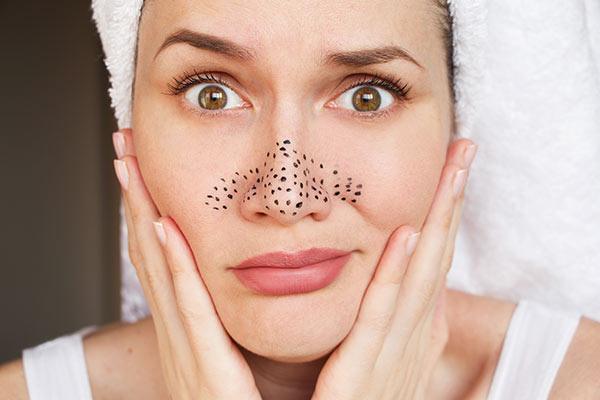Blackheads those pesky little dark spots that seem to appear out of nowhere on our faces, can be a source of frustration for many. These tiny blemishes, also known as open comedones, are a type of acne caused by the accumulation of excess oil and dead skin cells in hair follicles. While they are not harmful, they can affect our complexion and self-esteem. In this comprehensive guide, we will explore the causes of blackheads, effective prevention strategies, and various methods for safe and efficient blackhead removal.
Understanding Blackheads
Before delving into removal methods, it’s essential to understand what blackheads are and how they form. Blackheads occur when hair follicles become clogged with a mixture of sebum (oil) and dead skin cells. Unlike whiteheads, which are closed comedones, blackheads have an open pore, exposing the accumulated debris to air. This exposure leads to oxidation, turning the trapped material dark and resulting in the characteristic black color.
Causes of Blackheads
Several factors contribute to the formation of blackheads. Understanding these causes is crucial for developing effective prevention and removal strategies.
Excess Oil Production: Overactive sebaceous glands can produce more oil than necessary, leading to clogged pores and the formation of blackheads.
Dead Skin Cells: The natural shedding of skin cells can sometimes be uneven, causing them to accumulate and mix with sebum, contributing to pore blockage.
Hormonal Changes: Hormonal fluctuations, particularly during puberty, menstruation, and pregnancy, can increase oil production and trigger blackhead formation.
Cosmetics and Skincare Products: Some makeup and skincare products may contain ingredients that can clog pores, exacerbating the development of blackheads.
Preventing Blackheads
Prevention is often the key to maintaining clear skin and minimizing the occurrence of blackheads. Adopting a consistent skincare routine and making lifestyle changes can help prevent these unwanted blemishes.
Regular Cleansing: Washing the face twice a day with a gentle, non-comedogenic cleanser helps remove excess oil, dirt, and dead skin cells that can contribute to blackheads.
Exfoliation: Regular exfoliation helps slough off dead skin cells, preventing them from accumulating and clogging pores. However, it’s essential to use gentle exfoliants to avoid irritating the skin.
Oil-Free Products: Choose skincare and makeup products labeled as “non-comedogenic” or “oil-free” to reduce the risk of pore blockage.
Balanced Diet: A diet rich in fruits, vegetables, and whole grains, and low in processed foods, can contribute to overall skin health and reduce the likelihood of blackhead formation.
Methods for Blackhead Removal
While prevention is crucial, many individuals may already have blackheads and seek effective removal methods. It’s important to note that improper extraction can lead to skin damage and scarring, so it’s advisable to approach blackhead removal with caution.
Topical Treatments
Salicylic Acid: This beta-hydroxy acid helps exfoliate the skin and unclog pores, making it an effective ingredient in many over-the-counter cleansers, toners, and spot treatments.
Retinoids: Prescription retinoid creams or gels can promote skin cell turnover, preventing the formation of blackheads.
Manual Extraction
Comedone Extractors: These small tools with looped ends can be used to gently press on the skin around a blackhead, applying even pressure to extract the contents.
Steam and Compress: Applying a warm compress or steam to the face can help soften the skin and open pores, making manual extraction easier and less likely to cause damage.
Chemical Peels
Glycolic Acid Peels: Chemical peels containing glycolic acid can exfoliate the top layer of skin, helping to remove blackheads and improve overall skin texture.
Professional Treatments
Microdermabrasion: This non-invasive procedure uses a machine to exfoliate the skin, reducing the appearance of blackheads.
Laser Therapy: Certain laser treatments can target and reduce the production of oil, making them effective in treating and preventing blackheads.
Conclusion
Blackhead removal is a common skincare concern, and understanding the causes and prevention strategies is essential for maintaining clear, healthy skin. While there are various methods for blackhead removal, it’s crucial to approach the process with care to avoid skin damage and scarring. Adopting a consistent skincare routine, making lifestyle changes, and incorporating targeted treatments can help keep blackheads at bay and promote a radiant complexion. If individuals are unsure about the best approach for their skin type, consulting with a dermatologist can provide personalized guidance and recommendations.







